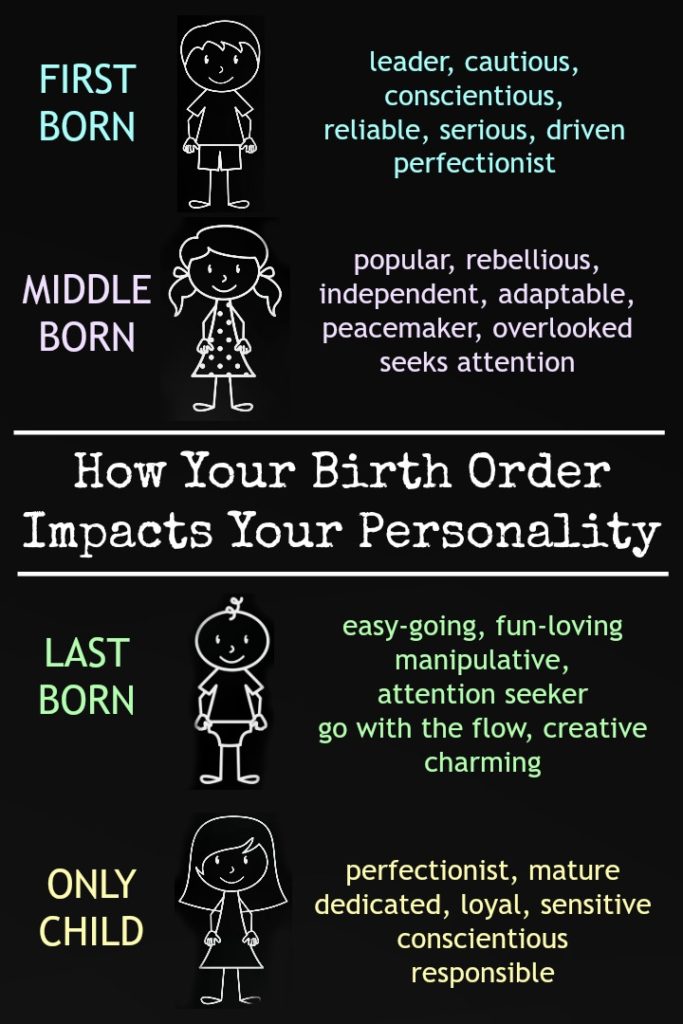 Researchers have been interested in birth order for nearly a century now, but learned only within the past three or four decades about the influence of birth order on our behavior and the nature of relationships with our partners.
Researchers have been interested in birth order for nearly a century now, but learned only within the past three or four decades about the influence of birth order on our behavior and the nature of relationships with our partners.
If brothers and sisters are raised by the same parents, how do they end up so different? How is it that one sibling grows up to be successful academically and professionally but with few friends, while another becomes the athlete with loads of friends? To the degree that one of the siblings is a responsible person, another will be attention-seeking or rebellious. One follows the ways of the parents and another looks outside the family for support. The strategies we learn in childhood for dealing with our parents and siblings has a lasting influence on our behavior, often in ways we barely recognize.
Birth order has a significant influence on our behavior in adulthood. The tactics we developed in childhood to deal with other members of the family remain with us and can cause conflicts in our relations with other people later on in life. Others may judge us as too ambitious, selfish, withdrawn, irresponsible, or opinionated. We may wonder why others would even see these attributes as problems.
Birth Order and Relationships
 How does all of this affect our choice of a partner? The best bet when deciding on a partner is to choose someone with a birth order unlike our own. This way we can benefit from the strengths of someone who has learned a different set of strategies for dealing with life. While we may initially be attracted to someone with our own characteristics, true adaptive strength lies in having a partner who can complement our own dispositions.
How does all of this affect our choice of a partner? The best bet when deciding on a partner is to choose someone with a birth order unlike our own. This way we can benefit from the strengths of someone who has learned a different set of strategies for dealing with life. While we may initially be attracted to someone with our own characteristics, true adaptive strength lies in having a partner who can complement our own dispositions.
So, which birth order makes the ideal partner? It depends on you. There are no hard and fast rules. Some people say that a first-born with a last-born provides for a good mixture of responsibility and playfulness. Others say that a first or only-born with few friends can benefit from a relationship with a socially-oriented middle child. Tempered by a good dose of common sense, the answer lies in your heart.
At a certain level we often look to our partner to make up for the things we don’t do well. So we resort to the scheme of trying to change our partner. A word to the wise, however – we cannot change another person. It is difficult enough to change ourselves.
One of the major goals of therapy is to understand how our development has affected our personalities as adults. Another is to see how these influences have slanted our ways of dealing with other people.
